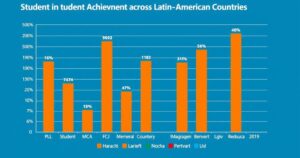Understanding Class Conflict and the Implications of Language in Egypt’s Revolution

The article elucidates the significance of class dynamics in determining Egypt’s political trajectory post-revolution. It emphasizes the importance of the language used to describe class conflicts, particularly the term “thug,” which has classist connotations and can distort public understanding of social unrest. The piece calls for careful consideration of this language to foster constructive dialogue and avoid reinforcing harmful stereotypes.
In the post-revolutionary environment, a society’s path can pivot towards either democratic governance or authoritarian rule, known as fascism. In Egypt, the trajectory of its political evolution is significantly influenced by the social class alliances formed during this transitional phase. Political theory indicates that a robust middle class, allied with the elite, often fosters democratic outcomes, as evidenced in historical contexts like France and the United States. Conversely, an alliance between conservative elites and the military, while marginalizing the middle class and working groups, tends to create fascist regimes. As Egypt navigates its current period of change, it is crucial to scrutinize the terms used to depict the class struggles ongoing in society. A particularly salient example is the term “thug,” which originates from a Turkish word referring to a weapon. This term carries distinct class implications when applied to individuals hired by the former regime to disrupt peaceful protests. Such usage reflects an economic dynamic between oppressor and victim. If the term is interpreted to describe a citizen expressing anger against class oppression through violent acts, it still maintains a fundamentally classist undertone. This individual, regardless of motivations, faces derision for failing to conform to the ideal of a civilized protester—a characterization that ultimately skews public perception and exacerbates societal divides. While I do not endorse violent protest tactics, it is vital to understand the context behind such actions. An increase in classist rhetoric within media discussions not only mirrors harmful stereotypes propagated internationally, particularly of Arabs and Muslims as violent extremists, but also hampers genuine discourse about social inequalities. As we move forward, it is imperative to exercise caution in self-descriptive language and remain vigilant about the social alliances forming, as they will critically influence Egypt’s political landscape in the years to come.
This examination of the Egyptian Revolution highlights the fundamental influence of social class dynamics on post-revolution political outcomes. The analysis draws on historical precedents to illustrate how different class alliances can lead either to democratic or authoritarian governance. The text suggests that the terminology employed in political discourse can reflect deeper societal issues, particularly regarding how violence is perceived and labeled based on class affiliations. As Egypt progresses, understanding and addressing these class perceptions and alliances becomes vital for shaping its political future.
In conclusion, the language surrounding class struggles in Egypt is not merely semantic but deeply reflective of underlying societal schisms. The continued use of terms like “thug” reinforces class divisions and contributes to a misunderstanding of the motivations behind social unrest. As Egypt transitions, the focus should be on recognizing and addressing these alliances, as they will invariably influence the nation’s governance and social cohesion going forward.
Original Source: worldcrunch.com





